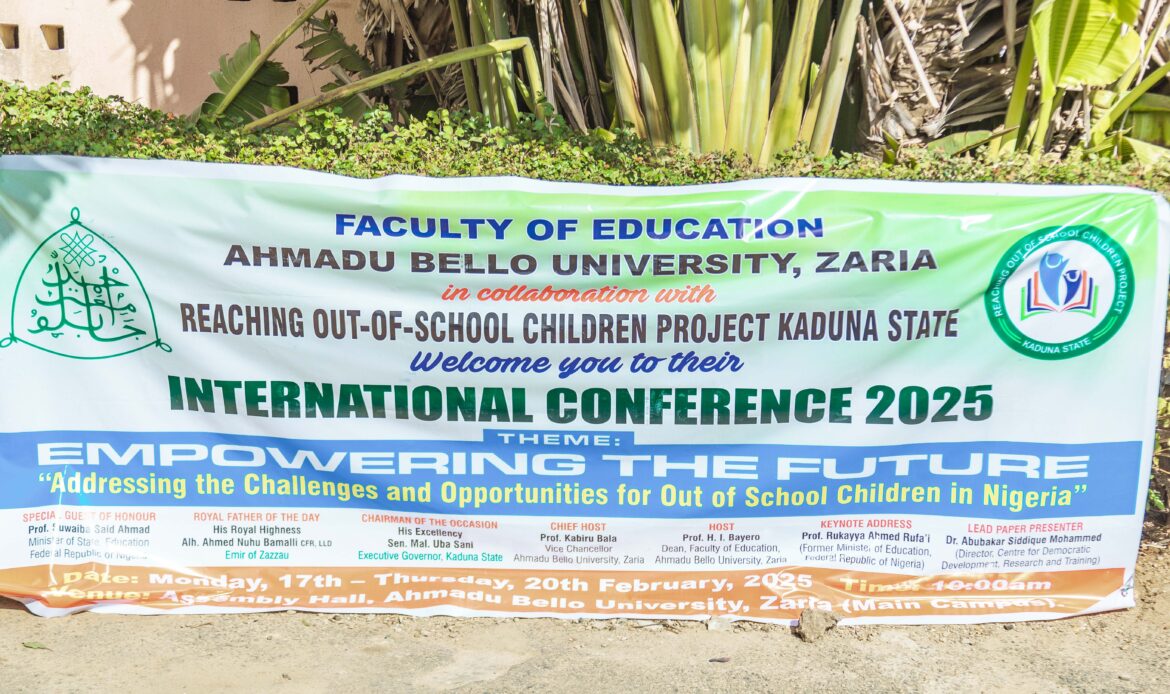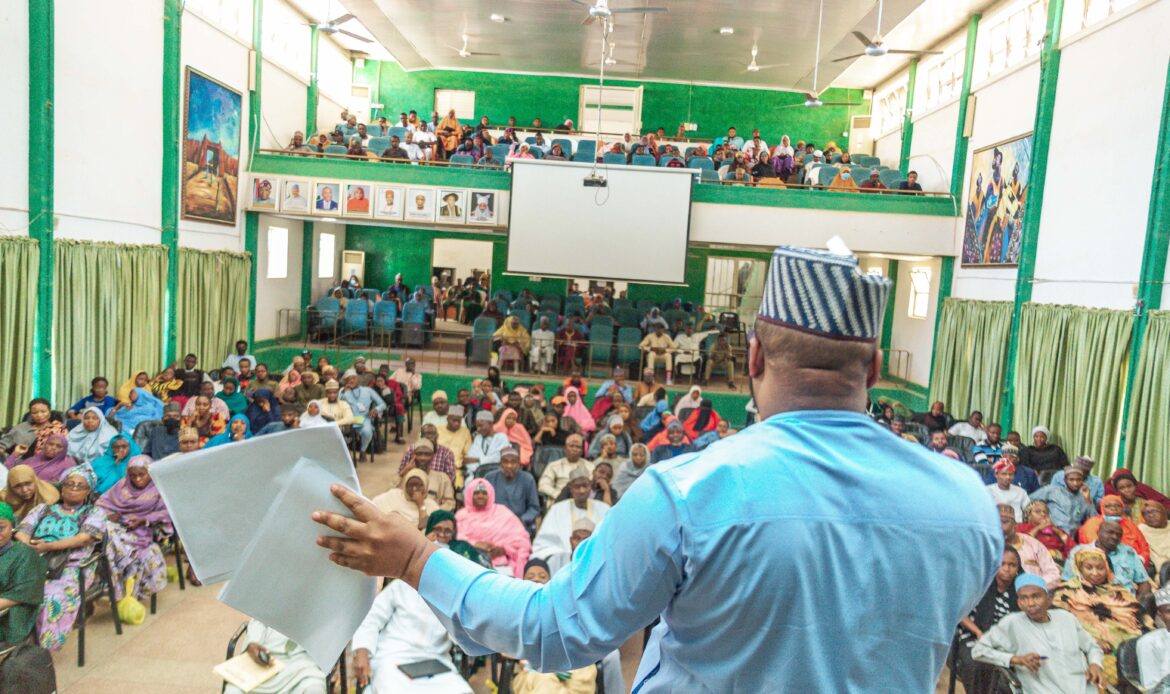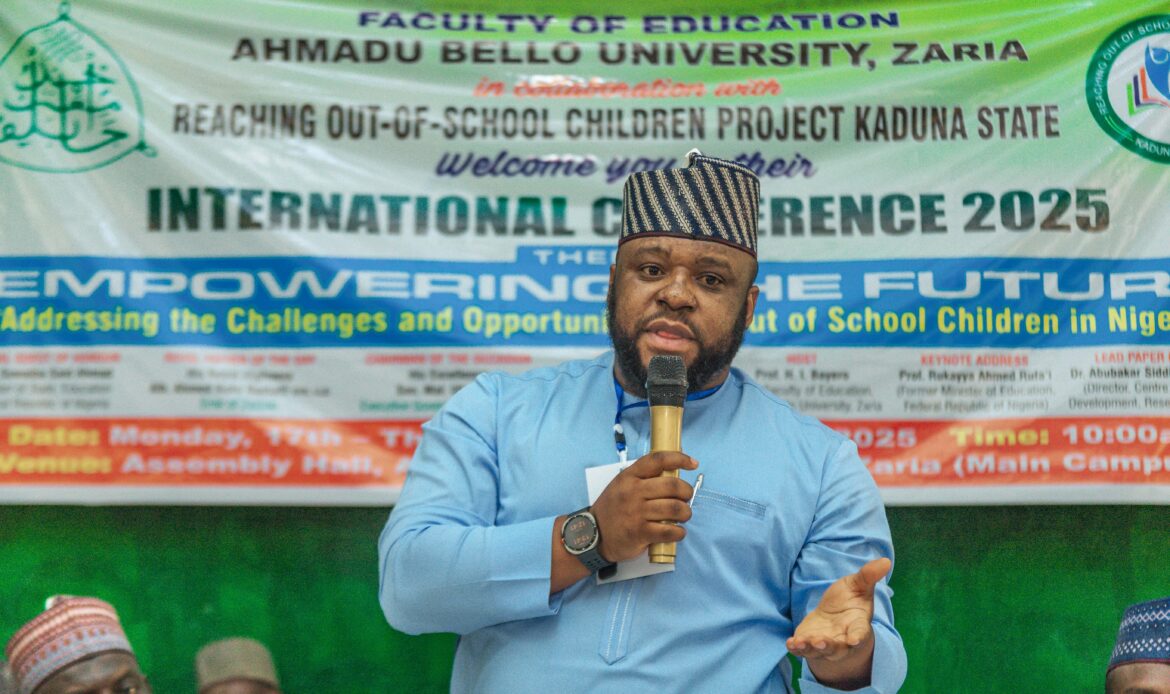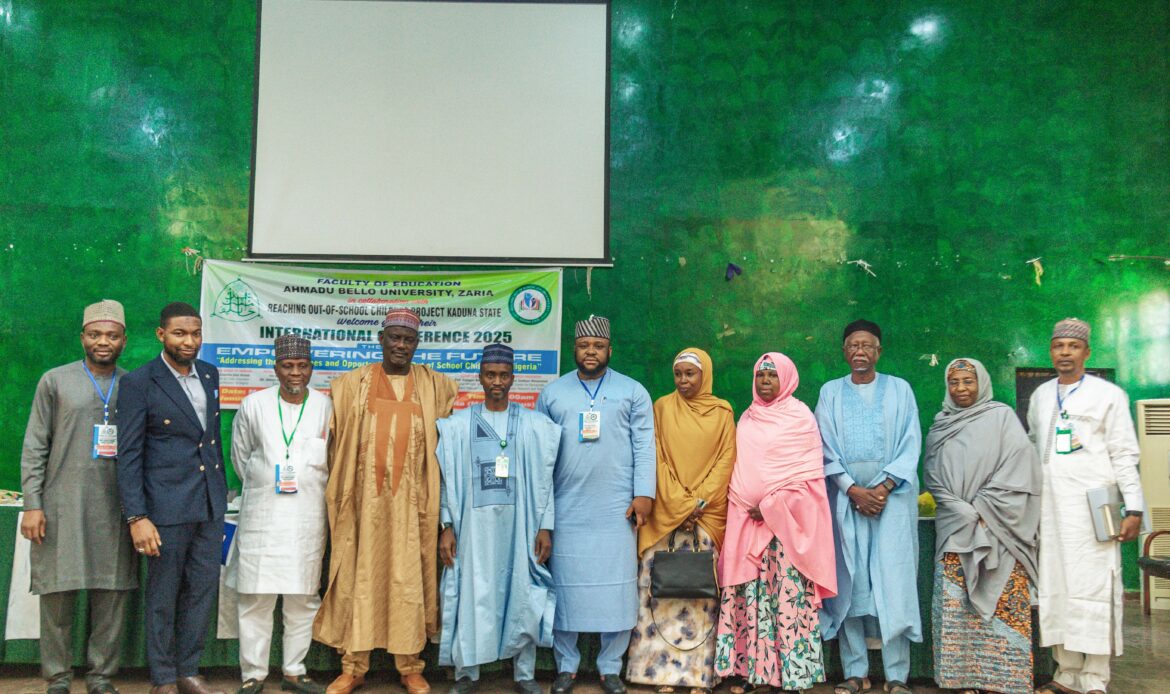A BOLD MOVE TO SECURE NIGERIA’S FUTURE

Nigeria faces a massive education crisis, with over 10 million children out of school. In an ambitious effort to tackle this issue, Ahmadu Bello University (ABU) Zaria, in collaboration with the Reaching Out-of-School Children (ROOSC) Project, recently held a high-profile education stakeholders’ conference in Zaria. Themed “Empowering the Future: Addressing the Challenges and Opportunities for Out-of-School Children in Nigeria,” the event brought together key players from government, academia, and international organizations to strategize on solutions to reintegrate children into the school system.
The ROOSC Project: Transforming Lives Through Education
At the heart of this movement is the ROOSC Project, a groundbreaking initiative by the Kaduna State Government, supported by global partners like the Islamic Development Bank, Global Partnership for Education, and Save the Children International.
The project aims to reintegrate over 200,000 out-of-school children through a multi-pronged approach, including:
- Building 102 new schools and renovating 170 existing ones
- Training teachers to enhance classroom effectiveness
- Focusing on girls, children with disabilities, and adolescents
- Ensuring access to quality primary education across all 23 LGAs in Kaduna State

Speaking at the event, Ezra Angai, the Project Coordinator for ROOSC, stressed that solving this crisis requires a comprehensive strategy, addressing barriers such as poverty, cultural norms, insecurity, and inadequate infrastructure.
Kaduna’s Investment in Education: Leading by Example
Governor Uba Sani, represented by Prof. Usman Abubakar Zaria, reaffirmed Kaduna’s strong commitment to education. Under his administration, the education sector receives the highest budget allocation—25% in 2024 and 26.14% in 2025. The governor emphasized that education remains the greatest equalizer, and Kaduna will continue implementing policies that ensure every child, regardless of background, has access to quality learning opportunities.
A National Emergency That Demands Action
ABU’s Vice-Chancellor, Prof. Kabiru Bala, described Nigeria’s 10 million out-of-school children (UNICEF, 2023) as a national emergency that requires urgent, collective action.
Key obstacles keeping children out of school include:
- Poverty and economic hardships
- Insecurity and conflicts
- Gender disparities and cultural norms
- Lack of adequate infrastructure
However, he stressed that these challenges can be overcome with strong policy advocacy, partnerships, and sustainable interventions.
“Education is light, and where there is light, darkness cannot thrive.” — Sir Ahmadu Bello

Federal Government’s Commitment to the Cause
The Minister of State for Education, Prof. Suwaiba Said Ahmad’s representative, described the issue as one of the most pressing crises in Nigeria, especially in the North-West region. She noted that:
- Over 10 million children are currently out of school
- Urgent action is needed to reverse the trend
- Collaboration with global partners can help find lasting solutions
She urged stakeholders to leverage technology, policy reforms, and community engagement to ensure that no Nigerian child is left behind.
The Way Forward: A Call for Collective Action
The conference set the stage for transformational change. With government commitment, international partnerships, and academic institutions driving research-based solutions, Nigeria is moving towards a future where every child has access to quality education.


